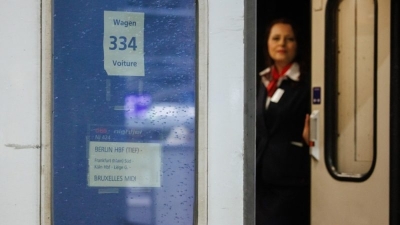Vending machines to ‘stand in’ for pharmacies in small Bulgarian towns

Pharmacy owners would be able to register vending machines for over-the-counter medicines to be placed in towns and villages in Bulgaria where no pharmacies are available, the Ministry of Health told Euractiv.
Nearly 10% of Bulgarian municipalities do not have a single pharmacy on their territory, and many cities with a population of up to 50,000 people do not have a 24-hour pharmacy, further complicating access to medicines.
According to the health ministry, the latest amendments to the Medicinal Products in Human Medicine Act will solve part of this problem, as they will allow vending machines outside pharmacies to sell medicines that do not need a doctor’s prescription.
“The changes in the Medicinal Products in Human Medicine Act are an important step towards improving access to medicines in small towns,” the ministry said, adding: “The owners of pharmacies and drugstores will have the opportunity to register vending machines to be placed in towns and villages where there is no open pharmacy, as well as to work outside the working hours of pharmacies and drugstores in larger cities.”
Vending machines will sell pain relievers, fever reducers, as well as heartburn and indigestion medications, laxatives, anti-diarrheal products, antihistamines, antiseptics and disinfectants, and anti-inflammatory medications.
For medicines that require a doctor’s prescription or are financed by the state health fund, citizens of small municipalities will still have to travel to the nearest big city to find a pharmacy.
Complicated access to medicines
In February, the National Association of Municipalities in Bulgaria announced that citizens’ access to both medical care and medicines has become increasingly difficult in recent years, especially in small and remote settlements, as well as in mountainous areas inhabited mainly by an ageing population.
People’s access to medicines and healthcare is also complicated by the lack of public transport. According to the association’s data, by the end of 2022, 25 out of a total of 265 municipalities in the country did not have access to medicines.
Bulgaria ranks third in the EU regarding the percentage of people aged 65 years and over in the total population, with 23,5%, following Italy (24%) and Portugal (24%), according to Eurostat.
A complex problem
“The problem of access to medicines is complex. Deploying drug vending machines cannot be the only solution to the problem. Their main purpose is to benefit patients, especially in remote areas or people in cities during off-hours,” the health ministry commented.
During the debate on vending machines, the National Chamber of Pharmacy expressed doubt that they would address drug shortages. According to representatives of the pharmacy chamber, mostly older people live in small and remote settlements, and they will not be able to buy medicines from vending machines.
The Chamber called on the municipalities to provide free premises where pharmacies can operate, as small towns are full of empty buildings. The Association of Municipalities responded that no pharmacist is interested in going to a remote, hard-to-reach location where 80 people live. Therefore, having vending machines seems like the only solution.
Increasing health culture
Another change in the pharmaceutical legislation proposed by the Ministry of Health is that pharmacies can carry out health promotion activities and not only dispense and prepare drugs. Pharmacies could also roll-out health education programmes for citizens to improve their health culture and disease control.
“The inclusion of health promotion activities in pharmacies is extremely important to optimise health resources. These activities may include providing healthy lifestyle counselling, disease prevention education campaigns, screening for various health problems, and more. This will help spread information about a healthy lifestyle more widely and support patients in maintaining their health,” the Ministry of Health told Euractiv.
Until now, pharmacists in Bulgaria were strictly limited to selling and preparing medicines, while in other EU countries, especially in small populated areas, they have much greater responsibilities, including administrating certain types of vaccines or anti-allergy medicines.
[By Antonia Kotseva, Krassen Nikolov, Edited by Vasiliki Angouridi, Brian Maguire | Euractiv’s Advocacy Lab]
Read more with Euractiv




